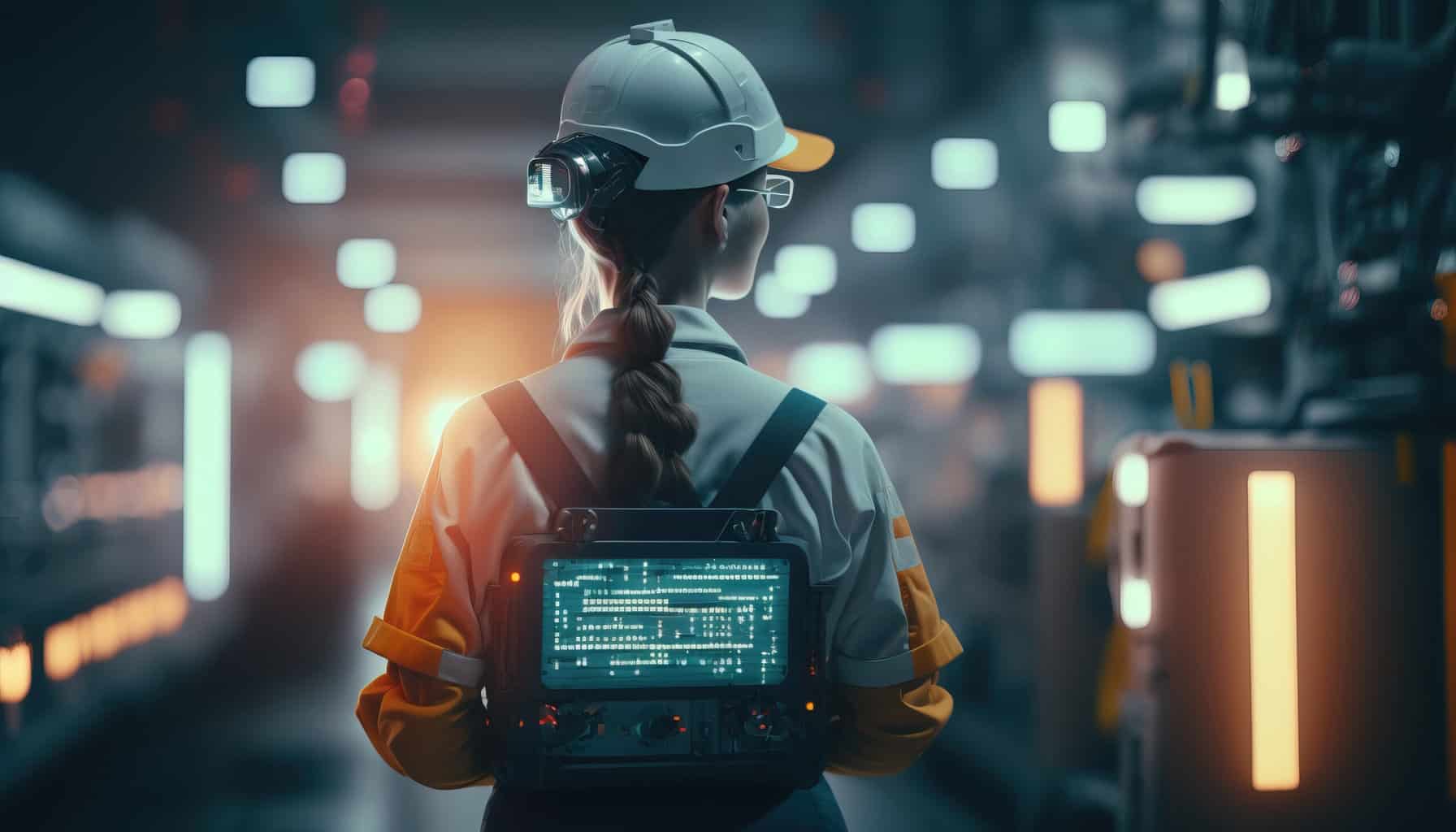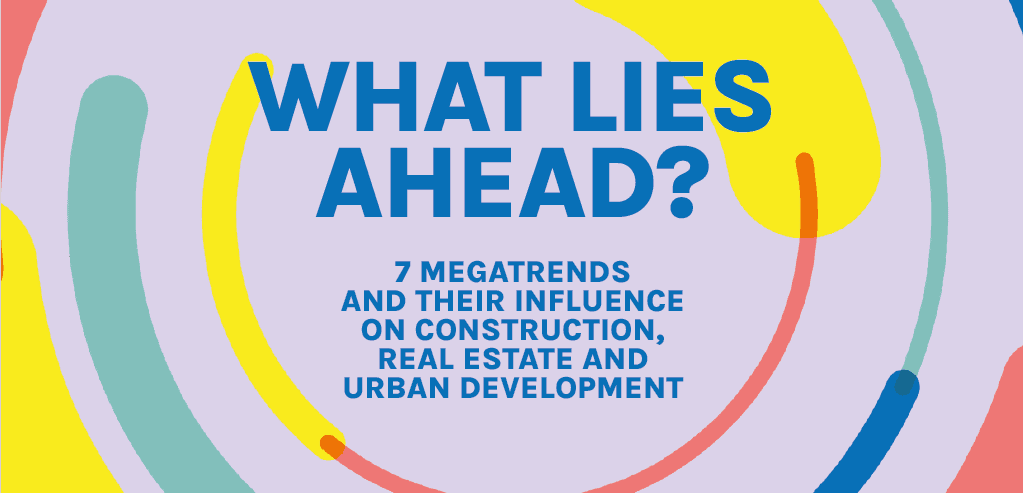
What added value does AI bring to the construction, real estate and urban planning industries?
4 minutes of reading
Artificial intelligence (AI) is changing the way industry professionals approach their day-to-day work. This is for good reason as the potential benefits of AI are numerous, from reducing costs to improved project quality and better management of resources. In which areas, however, is it already being used reliably? How can its use save time for professionals? Can AI and humans work together without making mistakes? What could be the benefits of using this type of tool? What better way to answer these questions than to interview an industry professional (Thiebault Clément, R&D Director at Bouygues Construction) and a form of artificial intelligence which has been in the news for several weeks (ChatGPT*).

Construction, where AI is already in use!
Although the advantages of artificial intelligence are numerous, they actually depend on the context of the application, the tools developed and, above all, on the type and volume of data available to train the algorithms. In practice, its potential is already being used in the construction sector for:- Planning and design where machine learning solutions generate optimised design proposals for flats and even neighbourhoods.
- Project management where AI helps ensure deadlines by warning about potential recurring problems and facilitates early decision making.
- Data analysis where AI analyses large amounts of data to identify trends (similar behaviours between comparable projects) and as a result can then identify abnormal figures for better understanding and correction. This type of analysis allows for informed and anticipatory decision-making on many issues.
- Predictive maintenance where AI helps to anticipate maintenance problems before they occur, thereby promoting user comfort, more efficient maintenance and reduced costs.
“Artificial intelligence made it possible, for example, to save materials during the construction of the retaining wall on line 15 of Saint-Cloud station – namely 140 tonnes of reinforcement overall,” explains Thiebault Clément, R&D Director at Bouygues Construction. “It has made it possible to put forward parking plans with an optimal layout in terms of parking spaces and to optimise the number of floors while retaining the same number of spaces.”
However, it is important to emphasize that AI will not replace human expertise. As ChatGPT demonstrates, artificial intelligence is based on multiple data sources, whereas professionals bring their own experience and ability to adapt to complex situations to the table. In this context, artificial intelligence should be seen as an additional tool which can help professionals to improve their own work. It could even be said that AI (the tool) and professionals will work in a complementary manner. As ChatGPT points out, “By combining human and artificial intelligence, we can draw on each other’s strengths to solve complex problems and complete projects.”
A tool to balance different challenges
“In the construction industry, we’ve always needed to model and search for an optimum,” continues the R&D Director at Bouygues Construction. “In recent years, we’ve used a price criterion for project designs which – meets the expectations and needs of project owners. Today, with the environmental pressure on construction and buildings, we’re seeing additional criteria being increasingly included, such as the carbon impact, energy, waste, etc. In this context, AI could help us find multidisciplinary optimisation solutions. In other words, find the right balance between price, carbon impact, energy consumption and waste. The aim is to find the best solution to meet all these requirements.” OK, but aren’t engineers currently doing that already (some might say)? “They lack the time and, in any case, cannot do it as quickly as artificial intelligence which can generate numerous use cases to determine the perfect optimum.”Simulations to improve project quality
Indeed, artificial intelligence models can be used to simulate construction conditions and detect potential errors before they actually occur, as ChatGPT explains perfectly. This is an advantage which changes everything! Data collected on previous projects can be used to help identify the most effective construction practices and improve construction processes. The prerequisite for this is to have a high-quality volume of data in order to train the algorithms which will be generating the answers to the questions asked as well as possible. “Buildings are complex systems,” explains Thiebault Clément. “Setting energy meters can be time consuming. Artificial intelligence called machine learning can already be used to optimise the setting up of a building. For example, if there are several meters for outdoor lighting, it’s possible to see if all the meters behave in the same way and as a result identify the meter which hasn’t been connected or which isn’t working properly more quickly and determine the cause. If the data is cross-referenced with other data sources, it becomes real time data analysis: correlations and behaviours on other parameters can be determined and cause and effect relationships can be understood.”Prediction: a new tool for planning and safety
Urban planning is also one of the areas which can benefit most from AI. AI algorithms can analyse demographic data, climate data, economic trends and traffic patterns to help plan more efficient and sustainable towns. Artificial intelligence can also be used to predict future demands on infrastructure and facilities. This is valuable information which can help planners to better direct their future investments. “In the future, AI should enable us to analyse cement-concrete compositions to predict their strength,” forecasts Thiebault Clément, R&D Director at Bouygues Construction. “Currently, we rely on a strength algorithm with a 28-day value. Using AI, we may be able to have a different, – more predictive approach. When it comes to architecture, AI-powered tools could help us choose and improve interior renderings. As for the operation of structures, we will be able to predict wear and tear by listening to the signals from a machine and then intervene before a breakdown occurs. Predictive systems are also very useful for engineering works! They will allow us, for example, to understand the wear and tear of cables and to identify coating defects more quickly. This allows you to know exactly where to intervene! AI may be a way to speed up restoration and to intervene at the right time.”Enhance safety on construction sites by anticipating risks
Artificial intelligence also has an important role to play in the safety of workers. AI sensors could be installed on construction sites to monitor working conditions and alert workers to danger. Robots are already – and increasingly – being used to perform dangerous and repetitive tasks. This reduces the risk to humans. This explanation by ChatGPT was confirmed by Thiebault Clément. “AI should enable us to identify a risky situation visually and more quickly. For example, a worker lacking personal protective equipment. It could also cover a potential loss of attention situation. Of course, to do this, we’re going to have to teach a machine different situations and give it the ability to create a history for itself using data about what has happened on other sites. This is the key to achieving a sound accident probability.”Reduce construction costs and user consumption
AI can help construction, real estate and urban planning professionals reduce costs. How? By better anticipating market demand, predicting future construction costs and enabling professionals to better plan their budgets. End-users could also benefit from artificial intelligence to optimise the use of resources such as energy and water in order to help the planet, as well as their own wallets.Improve industrial productivity
“Construction has made very little progress in terms of productivity, unlike the rest of the manufacturing sector,” explains the R&D Director at Bouygues Construction. How does this relate to AI? “As soon as you increase the digitalisation of site tasks with tools such as Dalux and Concrete Scan, etc., you create data which is useful for a better understanding of the site and of production downtime thanks to AI solutions–. We understand this in factories, but less so on production sites. This will allow us to improve productivity, as well as minimise surplus stock.” The construction industry is still in the habit of ordering more material to safeguard against unforeseen events, -which results in increased waste. Ordering only the amount of material needed will save money and reduce carbon emissions. In short, it is a much more virtuous circle for both the construction sites and the environment. All the benefits of artificial intelligence for construction, real estate and urban planning show the urgent need for the sector to modernise. This obviously involves thinking about recruiting from different backgrounds – to complement construction activities. In addition, “R&D needs to embrace the subject of AI and experiment to identify what is useful and what is not,” points out Thiebault Clément. “However, in terms of our ability to understand construction sites, we don’t have much data. We must therefore first understand what data we need, how to capture it properly (so that it’s usable), how often to process it so that it’s relevant and where to store it, etc.” This revolution/development has only just begun! * For the purposes of this article, ChatGPT was used to obtain some of the information mentioned in this article. However, the content has been completely reworked by a human editor!More reading
Read also




What lies ahead? 7 megatrends and their influence on construction, real estate and urban development
Article
20 minutes of reading

